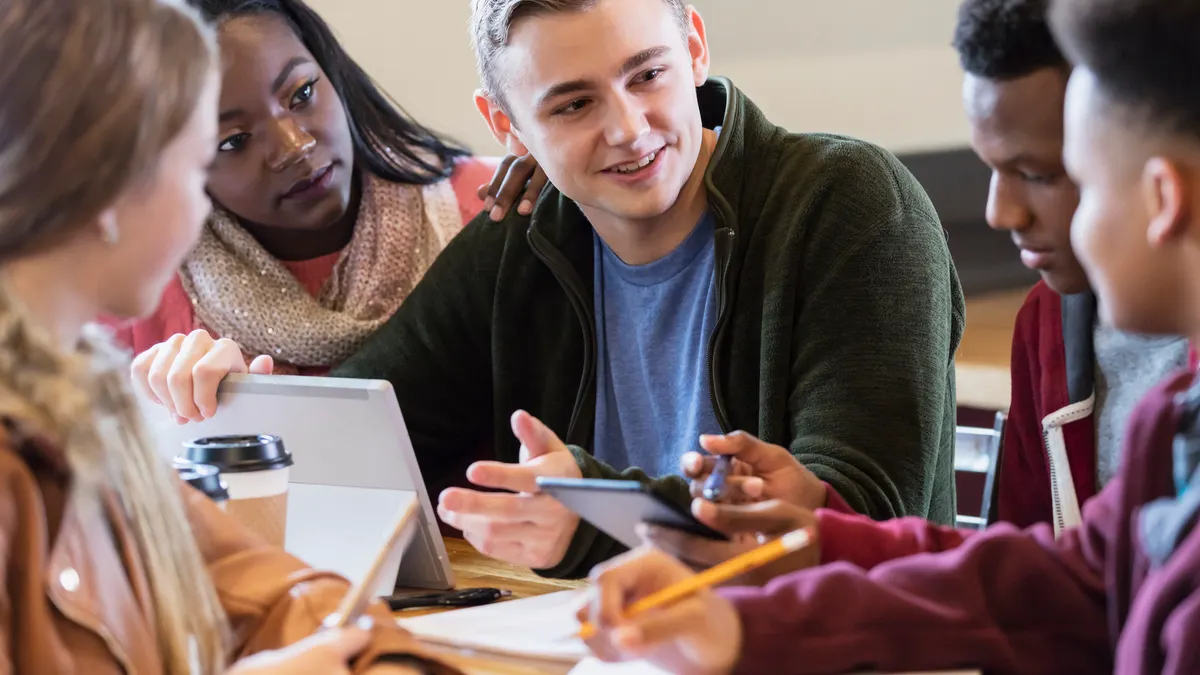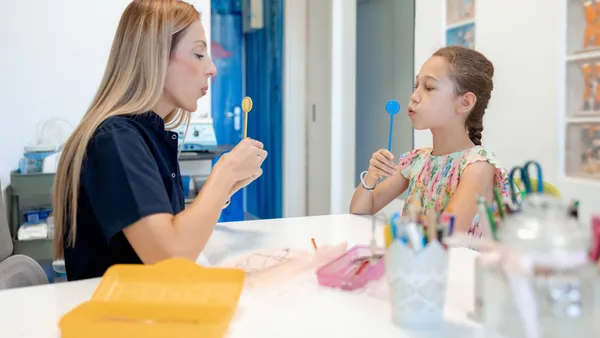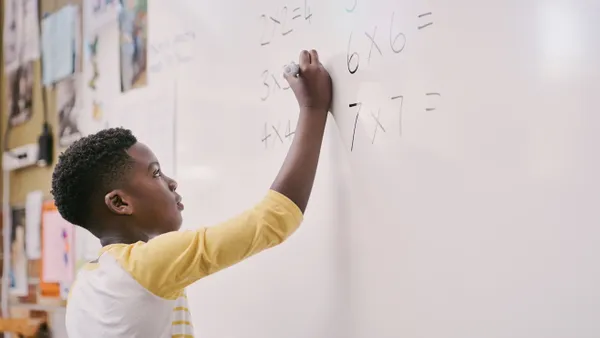The work world is undergoing a sea change, and high school students face an unprecedented challenge: preparing for careers that may not even exist yet. Today, students need more than subject-matter knowledge; they need adaptable, resilient skills that will serve them on the multiple pathways for these yet-to-be-defined jobs of the future.
No longer is it enough for educators to align curriculum to a vocation or a college opportunity. Skills are what matter, which is the driving force behind Skills for the Future (SFF), a joint endeavor between ETS and the Carnegie Foundation for the Advancement of Teaching designed to shift assessment of student learning to a competency-based framework that evaluates skills both in and out of the classroom. In fact, the 2025 ETS Human Progress Report found that 80% of global employees believe that by 2035, evidence of new skills acquired will be as valued as a university degree.
“The job market is evolving faster than ever due to automation, AI and rapid technological change, which means students need adaptable, transferable skills,” says Michelle-Noelle Magallanez, PhD, head of strategic partnerships & innovation for AVID Center, which equips students with the mindset, tools and support to own their learning and navigate complex systems like college admissions and career pathways. “Today’s careers require not only technical skills, but also the ability to lead with empathy, solve complex problems and continuously learn. Modern career readiness is about preparing students not just for their first job, but for a lifetime of navigating change and opportunity.”
That’s the goal of AVID Future Lab, a free resource educators can access for lessons that use the project-based learning (PBL) approach in a design-thinking framework.
What is project-based learning?
The goal of PBL is to give students a voice, ownership and a reason to care, explains Jorge Valenzuela, PhD, author of “Project-Based Learning+.” “They’re not just doing busywork; they’re ‘creating’ for real audiences as they learn by doing, researching, designing, building and presenting. Students are engaged because the work feels real, and they walk away with skills they can actually use.”
“PBL transforms learning from passive content absorption into active, student-centered exploration of real-world challenges,” adds Magallanez. “It encourages deeper learning, as students must apply what they know, reflect on their process and iterate their thinking.”
Among other skills, PBL teaches communication, collaboration, creativity and critical thinking, as students learn to evaluate sources, fact-check information and make informed decisions. “They use tech with purpose. It’s not about shortcuts, but about learning to think, reflect and lead in a world that’s changing fast, which directly aligns with the Skills of the Future,” Valenzuela says.
Tapping AVID’s Future Lab to cultivate skills of the future
While educators recognize the benefits of immersive lessons such as PBL, they can quickly become overwhelmed by the research needed for thorough development and adequate instructional time amid other academic expectations.
That’s where AVID Future Lab fills a void through a free project-based learning curriculum that incorporates authentic, real-world problem-solving to motivate and inspire students. The curriculum is divided into 10 lessons that can be used as schedules allow.
The lessons invite students to critically examine the role of social media in their lives and communities, a topic with immediate relevance. According to the Centers for Disease Control’s 2023 Youth Risk Behavior Surveillance report, 77% of high school students use social media several times a day; yet the Pew Research Center finds that nearly half of teens say social media harms people their age, up from 32% in 2022.
Through the PBL process, students research the impact of digital platforms, explore personal and societal consequences, and design real solutions to promote digital well-being, says Magallanez. “This empowers students to take ownership of their digital experience, build emotional intelligence and develop confidence in their ability to create positive change.”
And, she adds, “Along the way, they build the creative, reflective and collaborative skills that will support them in both life and career. Employers consistently cite communication, collaboration, critical thinking and creativity as top in-demand competencies, yet they are often underdeveloped in traditional curricula, and PBL provides a structured way to practice and refine them.”
Exploring AVID Offerings
Of course, AVID Future Lab is just one of the many offerings AVID provides, with AVID's College and Career Readiness Framework that emphasizes real-world skill application in every classroom, along with professional learning for educators, ensuring that skill development is intentional, equitable and embedded across all grade levels.
Educators can explore AVID’s offerings at National Conference (NatCon) and Summer Institute. These events bring together educators from across the country to celebrate best practices, share ideas, and gain new inspiration to take back to their schools.
Learn more about AVID’s upcoming events and offerings at AVID.org.











